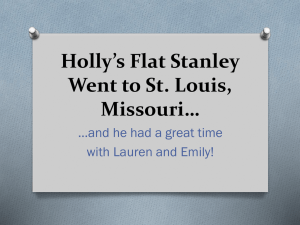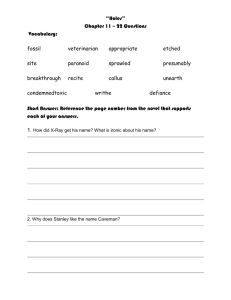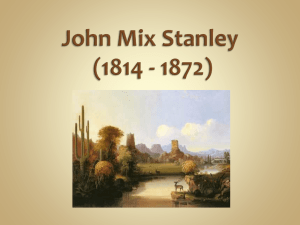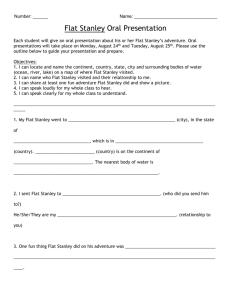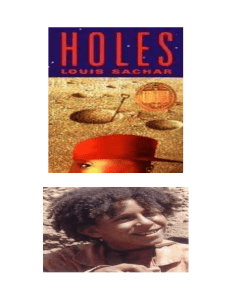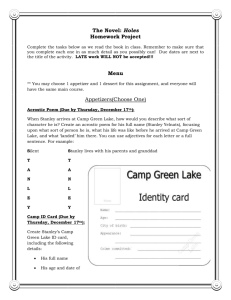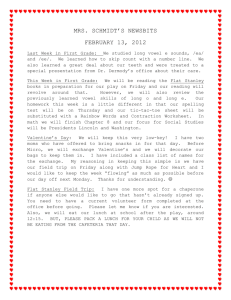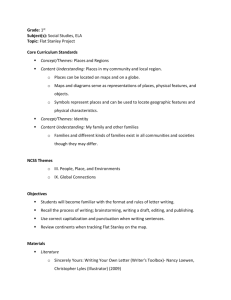Click here to open document - Saluda County School District 1
advertisement
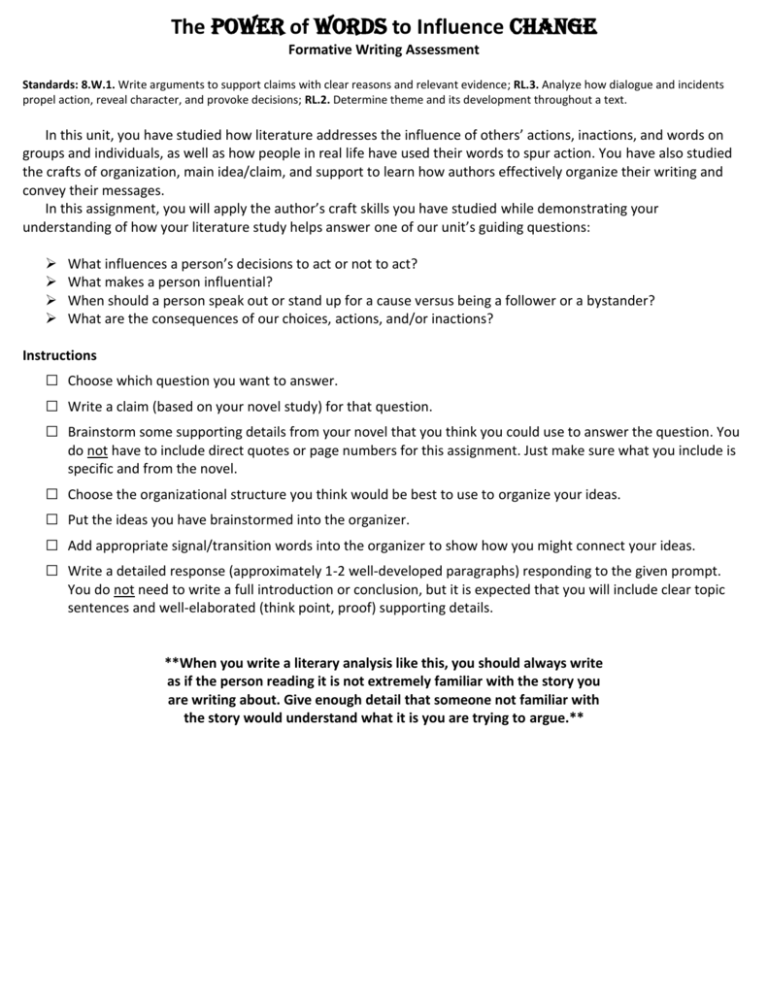
The POWER of WORDS to Influence CHANGE Formative Writing Assessment Standards: 8.W.1. Write arguments to support claims with clear reasons and relevant evidence; RL.3. Analyze how dialogue and incidents propel action, reveal character, and provoke decisions; RL.2. Determine theme and its development throughout a text. In this unit, you have studied how literature addresses the influence of others’ actions, inactions, and words on groups and individuals, as well as how people in real life have used their words to spur action. You have also studied the crafts of organization, main idea/claim, and support to learn how authors effectively organize their writing and convey their messages. In this assignment, you will apply the author’s craft skills you have studied while demonstrating your understanding of how your literature study helps answer one of our unit’s guiding questions: What influences a person’s decisions to act or not to act? What makes a person influential? When should a person speak out or stand up for a cause versus being a follower or a bystander? What are the consequences of our choices, actions, and/or inactions? Instructions □ □ □ Choose which question you want to answer. □ □ □ □ Choose the organizational structure you think would be best to use to organize your ideas. Write a claim (based on your novel study) for that question. Brainstorm some supporting details from your novel that you think you could use to answer the question. You do not have to include direct quotes or page numbers for this assignment. Just make sure what you include is specific and from the novel. Put the ideas you have brainstormed into the organizer. Add appropriate signal/transition words into the organizer to show how you might connect your ideas. Write a detailed response (approximately 1-2 well-developed paragraphs) responding to the given prompt. You do not need to write a full introduction or conclusion, but it is expected that you will include clear topic sentences and well-elaborated (think point, proof) supporting details. **When you write a literary analysis like this, you should always write as if the person reading it is not extremely familiar with the story you are writing about. Give enough detail that someone not familiar with the story would understand what it is you are trying to argue.** The POWER of WORDS to Influence CHANGE Formative Rubric for Feedback Conven tions Claim s Organization Content & Elaboration Exceeds Expectations Meets Expectations Below Expectations _ Stays on topic _ Includes thorough and convincing textual evidence for the purpose _ Details and explanations directly support the purpose _ Stays largely on topic _ Includes adequate textual evidence for the purpose _ Details and explanations are mostly aligned with purpose _ Central topic and purpose can be seen, but focus is inconsistent _ Textual evidence somewhat aligns with purpose _ Details and explanations somewhat align with purpose The response has a clear and effective organizational structure creating unity and completeness: _ Consistent use of a variety of appropriate transitional strategies to clarify relationships and create strong connections among ideas _ Logical progression of ideas from beginning to end with a clearly identifiable organizational structure The response has an evident organizational structure and a sense of completeness, though there may be minor flaws and some ideas may be loosely connected: _ Use of transitional strategies with some variety attempt to clarify relationships and create connections among ideas _ Adequate progression of ideas from beginning to end with an attempt to use an organizational structure _ Claim clearly stated, focused and maintained The response has an inconsistent organizational structure, and flaws are evident: _ Inconsistent use of basic transitional strategies with little variety and/or weak connections are made among ideas _ Uneven progression of ideas from beginning to end with no evident organizational structure _ Audience does not notice errors. _ Claim is stated and mostly maintained, though there might be a slight drift _ Audience is informed but notices a few errors. Does not Meet Minimum Expectations _ Wanders from topic _ Focus cannot be seen or has many side comments _ Textual evidence is minimal or absent or irrelevant _ Details and explanations do not align with stated purpose and/or frequent extraneous ideas may intrude The response has little or no discernible organizational structure: _ Few or no transitional strategies are evident _ No discernable progression of ideas from beginning to end _ Claim is absent, confusing, or ambiguous _ Audience is irritated by errors. Exemplar Writing Piece from Holes Zero’s decisions to act are based around his loyalty to others. When Zero was homeless, he had learned habits from his mom, whom he was very loyal to even though she left him. This is the reason why he stole Clyde Livingston’s shoes—his mom had taught him to always take what he needed, so he took the shoes. When he realized the shoes were famous, he ditched them, which led to Stanley’s arrest. The next day, Zero attempted stealing a new pair of shoes. As a result of his shoe thefts, Zero and Stanley both ended up at Camp Green Lake. At Camp Green Lake, Zero felt guilty about being the reason Stanley was there. This produced a sense of loyalty towards Stanley. Therefore, when Stanley got in trouble for stealing the sunflower seeds (which he didn’t do), Zero dug the rest of Stanley’s hole for him. This led to an eventual deal where Zero would dig a part of Stanley’s hole each day in exchange for Stanley teaching Zero to read and write. Their eventual friendship stemmed from this time they spent together. Because of this friendship, when Zero eventually ran away from Camp Green Lake, Stanley followed him and, as a result, ended up saving his life. If Zero had not been such a loyal person, he might have died from his experiences at Camp Green Lake. Exemplar Writing Piece from Holes Question: What influences a person’s decisions to act or not to act? Organizational Structure: Cause/Effect Effect Cause He was found on the street and sent to Camp Green Lake Zero was homeless Cause Zero saw the shoes and needed them Event Zero stole shoes of a famous baseball player Effect Zero threw the shoes when he heard sirens Effect Stanley got in trouble and sent to Camp Green Lake Cause Zero asked Stanley to teach him to read therefore Effect Effect/Cause Zero dug part of Stanley’s hole each day Stanley follows Zero into the desert Event Zero and Stanley become friends Cause It bothered Zero when Stanley took responsibility for things that weren’t his fault Effect Stanley eventually saves Zero’s life
